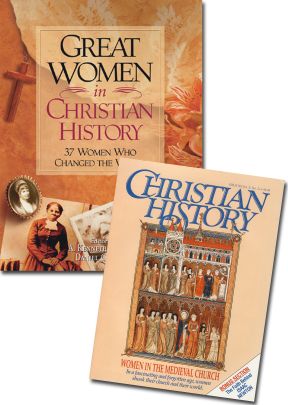GIVEN EQUAL OPPORTUNITY, FANNY COPPIN PROVED HER WORTH AS AN EDUCATOR
I NEVER ROSE TO RECITE in my classes at Oberlin but I felt that I had the honor of the whole African race upon my shoulders. I felt that, should I fail, it would be ascribed to the fact that I was colored.” So wrote Fanny J. Coppin in a brief autobiography.
Born into slavery, Fanny was freed as a young girl when an aunt purchased her. By fourteen years of age, she was supporting herself and seizing opportunities to educate herself. At twenty-three she entered Oberlin College, a Christian institution that accepted both women and African Americans.
During her junior year, the Oberlin faculty summoned her to appear before a committee. They informed her that they were giving her a preparatory class to teach. It would include white students. “I was to distinctly understand that if the pupils rebelled against my teaching, they did not intend to force it. Fortunately for my training at the normal school, and my own dear love of teaching, tho there was a little surprise on the faces of some when they came into the class, and saw the teacher, there were no signs of rebellion. The class went on increasing in numbers until it had to be divided, and I was given both divisions. One of the divisions ran up again, but the Faculty decided that I had as much as I could do, and it would not allow me to take any more work.”
She would say, “We do not ask that anyone of our people shall be put into a position because he is a colored person, but we do most emphatically ask that he shall not be kept out of a position because he is a colored person.”
Fanny went on to teach and to found schools that taught practical skills. She became the first African American woman principal of a high school. She added a teacher training program that included a teacher practice system, and she also added vocational trades. (This school was later moved to Pennsylvania, where it became Cheyney State College.) Attempting to obtain situations for trained African Americans, she uttered an appeal: “It is cruel to make a teacher or a preacher of a man who ought to be a printer or a blacksmith, and that is exactly what we are now obliged to do.”
In the hints on education that accompanied her autobiography, she counseled that teachers fill the mind of each student with “what we know will keep it pure and beautiful.” She urged that children be taught Scripture, because it would be an ally to them. To make her point, she quoted a few words of the hymn “Jesus loves me this I know”—for it is the Bible that tells us so.
A few years after her marriage to Levi J. Coppin (soon to become a Methodist bishop), she sailed with him for a decade of mission work in South Africa. There she taught temperance, established mutual aid cooperatives, and founded Bethel Institute in Cape Town.
When Fanny Coppin’s health failed, she returned to the United States and spent the last months of her life in Philadelphia, dying on this day, 21 January 1913.
Coppin State University in Baltimore is named for her, a tribute to her astonishing perseverance, practicality, and effectiveness. These qualities had been recognized even during her life. In 1893, for instance, she was one of five African American women invited to speak at the World’s Congress of Representative Women in Chicago.
—Dan Graves
----- ----- -----
For more stories of exceptional women, read Great Women in Christian History






